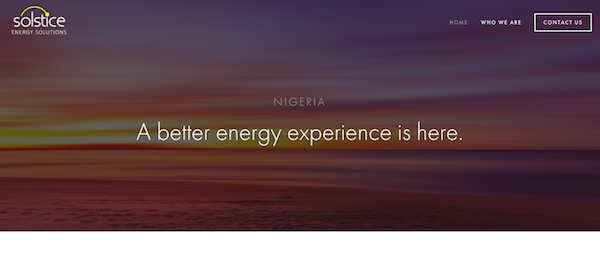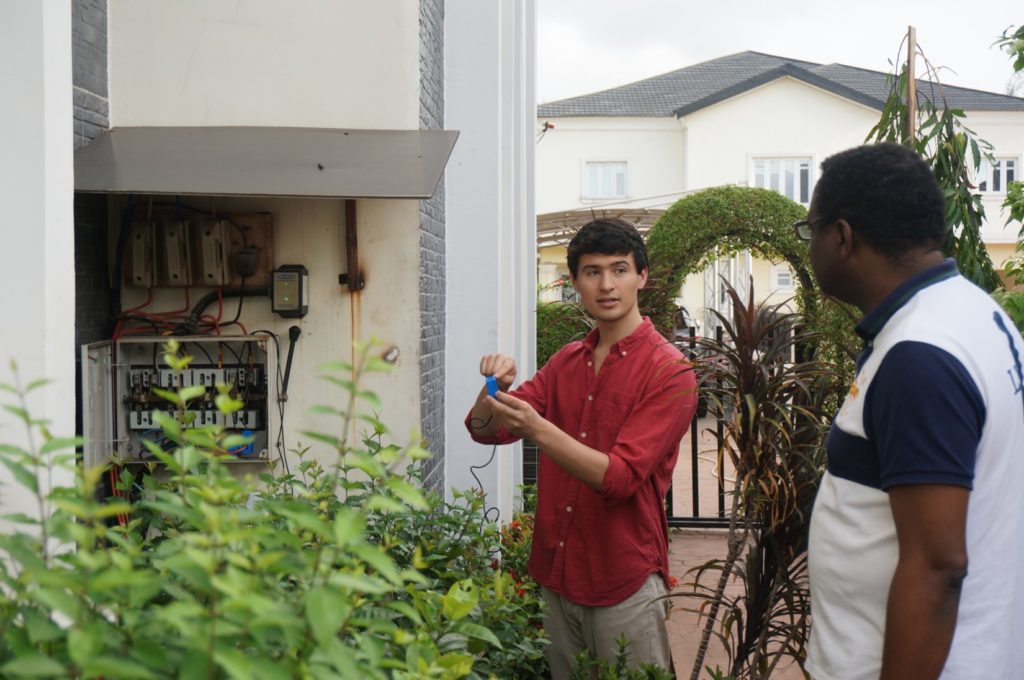Achieving optimum energy management and by extension, stable power supply in Africa is one discussion that been going on for a while now. The state of Nigeria’s power supply has led to a heavy reliance on generators and it doesn’t take a genius to figure out how this is bad for the environment.
The renewable energy market in Nigeria is still growing and not many Nigerians can afford to augment their power supply will solar energy. Enter Solstice, an energy solution for Nigerian homes. Solstice was one of the winners of this year’s DEMO Africa and what they do is “use data-driven approaches to help Nigerian homes be more energy efficient, and find cleaner, reliable, money-saving energy solutions.”
It all began sometime in 2015 when co-founders Ugwem Eneyo and Cole Stites-Clayton were both in graduate engineering programmes at Stanford University. At the time, they were developing software, tools and approaches to help homes design clean energy solutions, and being Nigerian, Ugwem was no stranger to the challenges homes could face regarding power supply. In her words, “From experience, I argued that developing platforms and tools for their unique context could be valuable, if not more so relative to the energy challenges Californian homes face.”
After spending several months working with a team (at the same time bringing together Stanford innovation, Silicon Valley experience and African local knowledge), Ugwem and Cole developed the Solstice eBox. The eBox is an integrated hardware and software platform that allows Nigerian homes efficiently use and monitor energy sourced from both the national grid and personal generators. It also provides a reliable and transparent way for these homes to integrate solar and battery technology into their power supply. It’s a simple, non-invasive hardware and users can set it up by themselves in approximately 10 minutes.
One of the barriers to the adoption of solar power is the high (initial) cost – solar panels are expensive and the cost of setting everything up is pretty steep. Fortunately, Solstice users don’t need to worry about this because they can access the eBox using a subscription-based model with monthly payments. With the data received, homeowners can decide whether or not they are interested in integrating solar and battery technology and get customised designs through the app.
The Solstice eBox is not supposed to totally replace power supply from the national grid. According Ugwem, “Taking homes off-grid is not always the most optimal solution, and for many of our urban homes, isn’t the solution. Instead, we focus on hybrid systems that are better designed and easier managed with our technology, which can work with or without solar technology.”
The Solstice team believes that data-driven solutions are at the forefront of innovation in Nigeria. Ugwem says, “We have exciting plans regarding what we can do with not only the data, but also being in the palms of up to millions of Nigerian homes.”
Right now, Solstice is a beta project funded by Stanford’s Tomkat Center For Sustainable Energy and they operate on an invite-only basis. They hope to launch officially in 2017.


















